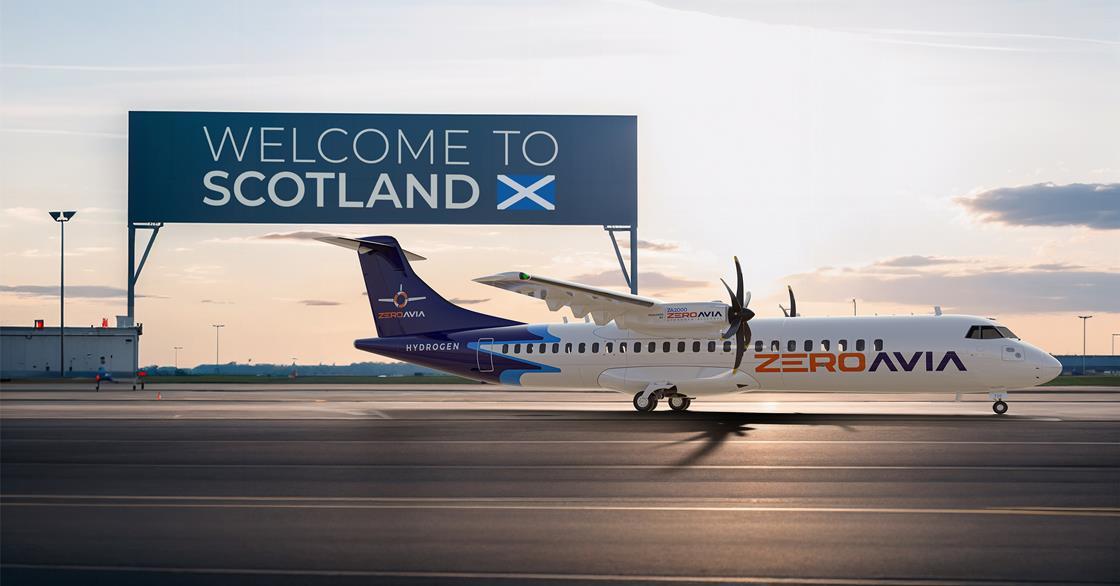ZeroAvia to Establish Hydrogen Fuel Cell Powertrain Plant in Central Scotland
Key Ideas
- ZeroAvia plans to build a hydrogen fuel cell powertrain manufacturing plant at the AMIDS site in central Scotland near Glasgow airport, set to become the company's Hydrogen Centre of Excellence.
- The project receives significant financial support, including a £9 million grant from Scottish Enterprise and investments totaling £52 million from the Scottish National Investment Bank and the UK National Wealth Fund.
- The facility is expected to create 350 jobs and will focus on producing high-temperature PEM fuel cell stacks and supporting systems for zero-emission flights, aiming for service entry of the ZA600 powertrain in late 2026 or early 2027.
- ZeroAvia's founder highlights Scotland's strong aerospace and engineering skills, growing hydrogen sector, and aviation strategy as advantageous for the company, emphasizing the potential for cleaner, economically viable, and enhanced aviation experiences.
ZeroAvia, an advanced propulsion developer, is set to establish a hydrogen fuel cell powertrain manufacturing plant in central Scotland near Glasgow airport. The plant, located at the Advanced Manufacturing Innovation District Scotland (AMIDS) site, will function as ZeroAvia's Hydrogen Centre of Excellence. With a focus on manufacturing high-temperature PEM (HTPEM) fuel cell stacks and supporting systems, the facility will support the company's efforts towards zero-emission flights. The project receives substantial financial backing, including a £9 million grant from Scottish Enterprise and investments totaling £52 million from the Scottish National Investment Bank and the UK National Wealth Fund. ZeroAvia anticipates the creation of 350 jobs through this initiative. The company also revealed orders worth $10 billion for its engines and components from airlines and OEMs.
The founder and CEO of ZeroAvia, Val Miftakhov, praises Scotland's aerospace expertise, strong engineering skills, growing hydrogen industry, and clear aviation strategy. He sees these as advantageous for ZeroAvia's goals of revolutionizing aviation with cleaner and economically feasible flights. ZeroAvia's propulsion center in Everett, Washington State, will focus on building electric motors and power electronics. The ZA600 powertrain, with a power output of 600kW, is currently seeking certification from the UK Civil Aviation Authority, aiming for service entry by late 2026 or early 2027. The company has also secured RVL Aviation as the launch customer for its system, intended for a modified Cessna Caravan cargo aircraft. Future plans include the development of the ZA2000 system for regional aircraft with 40-80 seats, leveraging the HTPEM technology that will be manufactured at the Scottish site. ZeroAvia's vision aligns with the industry's shift towards decarbonization and zero-emission flight initiatives, marking a significant step towards a more sustainable aviation sector.
